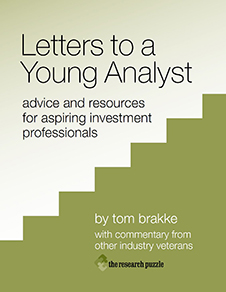
- Monday, September 29th, 2008
- wearing two hats
-
We are all multitaskers now. Most of us are figuratively chained to an electronic machine of some sort throughout our days, and are constantly flitting from thing to thing based upon the flow of bits and bytes that are flung at us. How well we juggle those tasks is currently a hot topic of research, and will be the subject of a future posting.
The topic of this one is rather the balancing of multiple functional roles within an organization. Many of us are asked to do a variety of different things. Entrepreneurs at small investment operations could keep a haberdasher hopping as they try to deal with the wide range of tasks needed to build a business. For bigger firms, a key question is often whether the best money manager also has the time or ability to run the business well.
The two hats to which we now turn our attention are those of mutual fund manager and hedge fund manager, and our gaze was pointed there by a pieceAllAboutAlpha.com | Like clockwork, one posting a day is published on this site, and there are lots of other resources to be found there as well. If you are interested in the search for alpha, it is required reading. This piece demonstrates the thoughtful integration of academic and industry work that is a hallmark of the content to be found there. written by Christopher Holt, the editor of AllAboutAlpha.com. The question at hand for Holt is whether a person, team, or firm can wear both hats without one of them getting worn and frayed from abuse.
Holt’s article cites research on all sides of the question, and includes a nice summary from one study that lists six common areas of concern and potential conflict: front running, cherry picking, trade allocation, soft dollars, IPOs, and quid pro quos. Since hedge funds have incentive fees that reward good performance, the common expectation (and fear) is that all decisions that are made hurt the mutual funds under management.
Mutual fund shareholders whose assets are managed by firms that also have hedge funds have a right to know whether they are disadvantaged in any way. While academics will and should continue to do evaluations across the industry, it is up to the mutual fund directors to step up to the plate on this issue. Too often the information that they look at is spoon-fed to them by the advisers of the funds instead of being independently verified. Fund boards should be aggressively investigating these questions on behalf of their shareholders.
Of the hedge fund investor who is presumed to benefit from any differential treatment, one might ask whether a manager in the habit of cutting corners for personal gain could extend the treatment to other clients during tough times. In any case, a part of the due diligence process should focus in detail on the policies of the manager regarding conflicts of interest in the management of different pools of money. If nothing else, it will help you determine how at risk the management firm is from their ways of doing business.
For firms and individuals involved in the management of hedge fund and mutual fund assets under one roof, having detailed (and, of course, sensible) procedures in place to minimize potential conflicts of interest is an absolute necessity. The compliance recommendations of Best Practices for the Hedge Fund IndustryU.S. Treasury | This is subtitled “Report of the Asset Managers’ Committee to the President’s Working Group on Financial Markets,” and there is a companion report that was prepared for the PWG regarding best practices for hedge fund investors. and Sound Practices for Hedge Fund ManagersManaged Funds Association | See especially Appendix VI regarding a checklist for compliance procedures. are the obvious starting places, but the hard work of applying those general principles to the specific circumstances of managing different pools of assets must be done, hopefully within the universal “culture of compliance” that is crucial for success.
Not proceeding in that fashion is courting disaster, with nary a hat in your future to protect you from foul weather.
